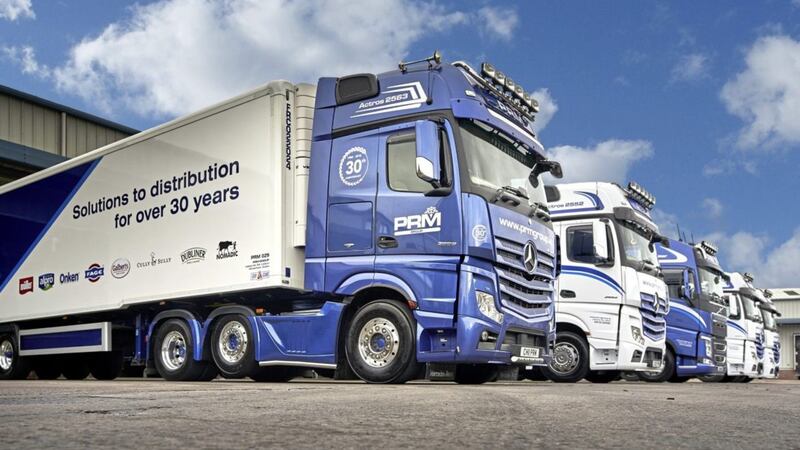A NEW study in the Republic has confirmed a significant shift in companies switching their supply lines from Britain to Northern Ireland under the post-Brexit protocol.
The research, conducted by the Economic and Social Research Institute (ESRI) and the Department of Finance in Dublin, said an examination of detailed product data showed a sharp decline in trade between the Republic and Britain, while trade with the north “has increased considerably”.
Last week the Irish Central Statistics Office (CSO) said northern firms exported an extra £1 billion of goods to the Republic in the first ten months of 2021.
ESRI said the reorientation of supply lines post-Brexit had resulted in the share of Irish imports from the UK originating in Northern Ireland rising from six per cent in 2015 to over 40 per cent in 2021, mainly driven by the food and beverage sector.
It comes as one of the biggest chilled food delivery groups on the island of Ireland said it will invest £8 million in a new purpose-built storage and distribution hub in Lisburn.
The PRM Group said the 100,000 sq ft facility will increase its storage capacity, and centre all its transport and manufacturing operations on one site.
The company currently supplies around 300,000 cases of chilled and frozen goods per week across Ireland and the UK, employing around 250 people.
But it said the combination of Brexit and Covid-19 had created “operation challenges for supply chains in a changing environment”.
In a document submitted to Lisburn & Castlereagh City Council’s planning department, it said: “This proposal will ensure that PRM has a modern, state-of-the-art facility to meet today’s requirement with increased storage capacity, manufacturing, and distribution all on one site.
“This will ensure PRM continues to lead Ireland’s food industry both today and in the future, which will benefit the local area and the region.”
PRM said the move will create new jobs in its warehouse, production facility and offices “along with secondary economic benefits via the local supply chain, construction and via non-domestic rates”.
Set up by Philip and Lynne Morrow in 1988, PRM made its mark on the distribution industry after linking up with Muller in the early 90s. Its other clients include Karro, Alpro and Unilever.
It later moved into food processing by acquiring Fresh Food Kitchen and Drogheda’s Galberts in 2006.
Meanwhile, Stena Line has again realigned its freight services in response to increasing demand for crossings between Britain and the north.
The ferry company said freight routes between the Republic and Britain have dropped by 25 per cent since Brexit, while trade routes into Northern Ireland from Britain have seen month on month increases.
Stena has redeployed its larger Stena Foreteller ship to the Belfast to Birkenhead route, increasing freight capacity by 13 per cent.
The ferry group’s Irish Sea trade director, Paul Grant, said: “We are seeing a prolonged distortion of the market in terms of the preferred freight routes between Britain and the island of Ireland.
“This presents an ongoing challenge for the entire logistics industry to keep pace with shifting demand and preferences.”
ESRI’s study said the Republic had sourced 23 per cent of all its imports from Britain in 2015. By early 2021, that had dropped to just 7.2 per cent.
Co-author of the report, Martina Lawless said: “Although many supply chain challenges have come together since the onset of the Covid-19 pandemic, the greatest driver of the reduction in Irish imports from Britain can be traced to a Brexit effect.
“There has been a less substantial impact on [the Republic's] exporters so far and continued good news coming from the deferral of customs checks on goods moving from Ireland to Great Britain which had been due to be introduced in January.”



